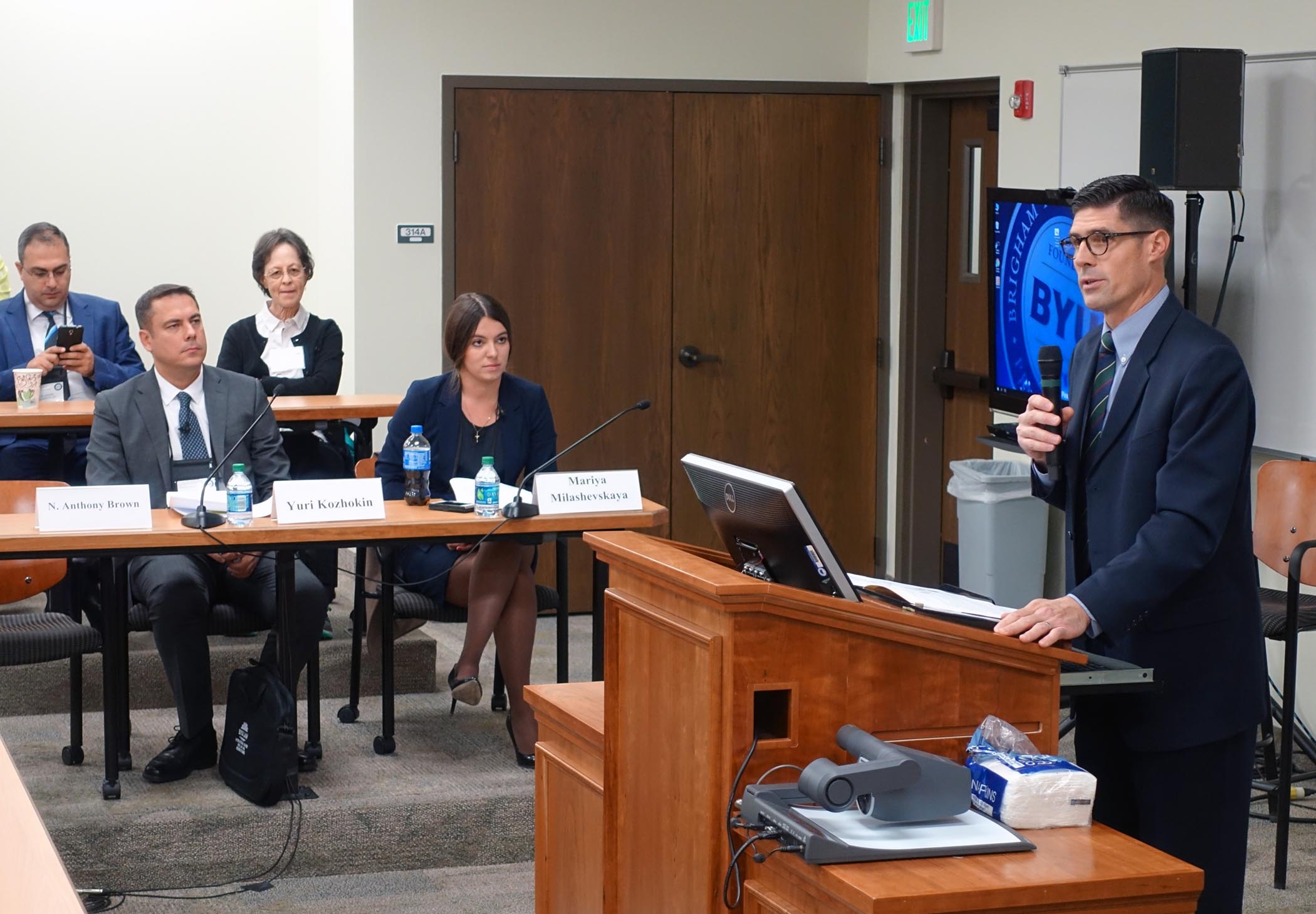Symposium 2016: Belarus and Russia

The Belarus and Russia session was moderated by N. Anthony Brown, a professor of Russian at Brigham Young University. The panel featured two speakers, Yuri Kozhokin, an attorney at law, and Mariya Milashevskaya, a teacher at International University MITSO in Belarus.
Yuri Kozhokin spoke of the Yarovaya Act recently passed in the summer of 2016. He indicated that while religion is typically used as an umbrella, not a vehicle for violence, it can be a cover up for some to advance their interests. Thus the Russian government and legislators acted in a way to protect their citizens via the Yarovaya Act.
Prior to the Yarovaya Act, missionary activity was not regulated. One amendment of the act regulates missionary work done by religious organizations and does affect operations of religious organizations and major believers in Russia. As a result, foreign missionaries are no longer issued humanitarian visas, but work visas. This is a more complicated procedure and has quota limits. These visas may take over a year to issue.
He did cite a case where a bible study group was fined. The Courts thought this was a non-registered religious group. This is an example of forcing believers to register. However, on a positive note, Christian followers have been detained but in the majority of cases, charges have been dismissed because there were no connections made between the individuals and organizations.
In the question and answer portion of the session, Mr. Kozhokin was asked if the Yarovaya Act was a way of legitimizing religious persecution. He indicated that it is too soon to say. There is no indication it is aimed at a particular religion. The original intention was good but those who recruited terrorists didn’t use religious visas, but rather tourist visas. In answer to additional questions, he indicated that the bill was adopted very quickly. Time will tell how the act will truly affect religious organizations and believers.
Mariya Milashevskaya did not present on the present situation in Belarus but rather spoke on the burkini ban in France. She defended the right to wear the burkini. She stated that 64% of the French public supported the ban while the rest did not have an opinion. The issue of religious clothing in public is ongoing in France. Banning the burkini is a new interference in private life and is not necessary.